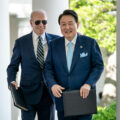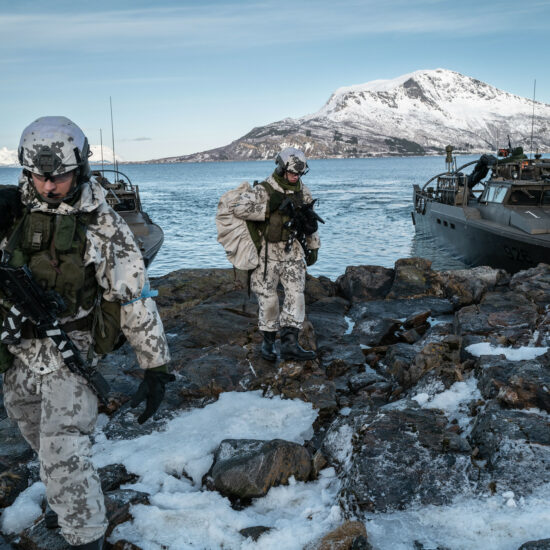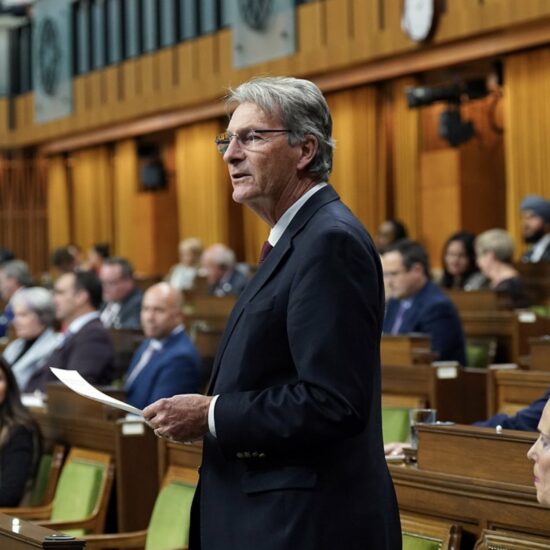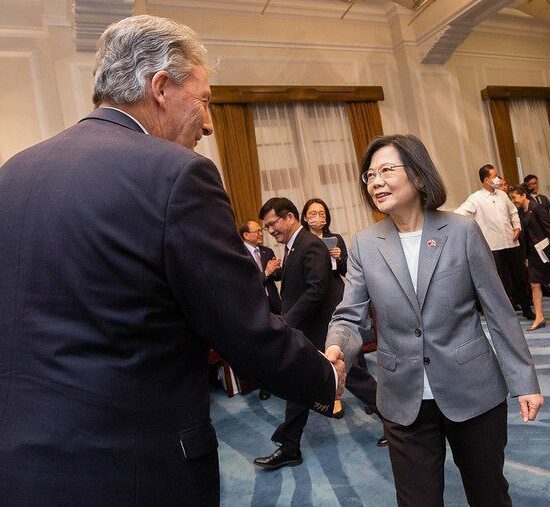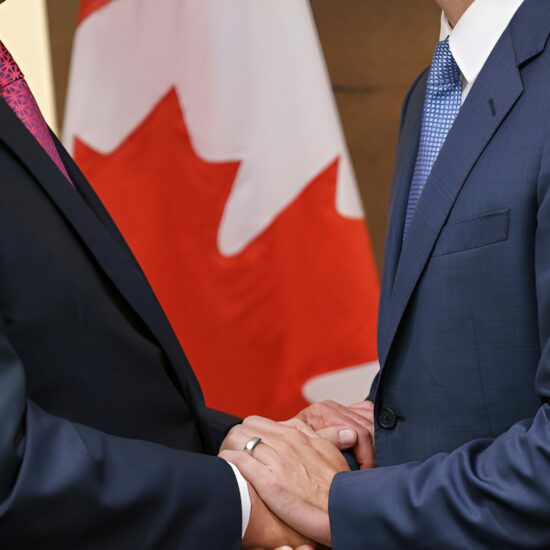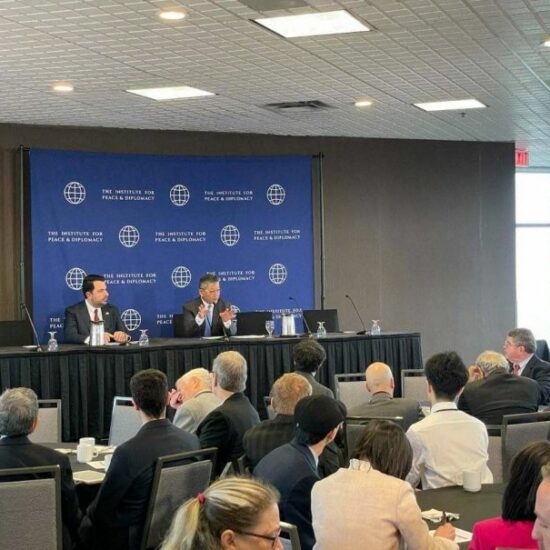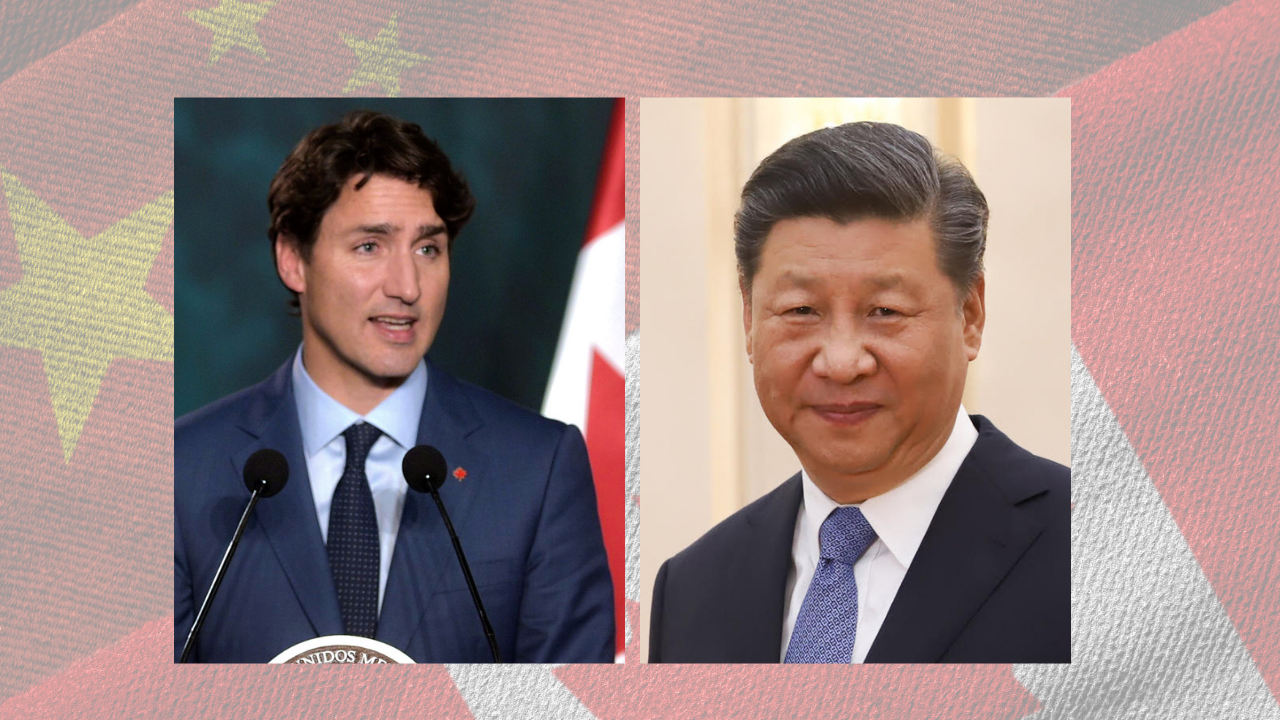
The end of the nearly three-year saga sparked by the detention of Huawei CFO Meng Wanzhou in December 2018 has spawned a reckoning of Canada’s relationship with China and offers an opportunity to reflect on the changed international system in which we find ourselves. One of the most consequential changes is that the United States and China now openly acknowledge that they are engaged in an ideological struggle. In his speech marking the centenary of China’s Communist Party, Chinese President Xi Jinping made clear that one-party rule is a form of political organization best suited for modernization and interstate rivalry in the 21st century. In his debut address to the United Nations, US President Joe Biden countered that the “future belongs to those who give their people the ability to breathe free, not those who seek to suffocate their people with an iron hand of authoritarianism”.
Canada must reflect on the risks posed by the return of ideology and what this means for Canadian foreign policy. A China policy based on ideological conviction is likely to contribute to intensifying the security dilemma between the great powers, further eroding the “rules-based international order” which Canada has a strong interest in preserving. Instead, Canada should adopt a posture rooted in prudence, which requires rejecting ideological confrontation and recognizing that the post-Western world features multiple modernities and centres of power.
The return of ideology
If 1989 marked the dénouement of the Communist regime, then the ensuing three decades have witnessed a remarkable turnaround in its fortunes. The resilience of China’s party-state, its ability to adapt and deliver real results while maintaining one party rule is a serious challenge to Western conceptions of political development. Speaking at the 2020 Munich Security Conference, where attendees gathered under the theme of “Westlessness”, Austrian Chancellor Sebastian Kurz referenced China building the 1,000-bed Huoshenshan Hospital in Wuhan in only 10 days at the height of the COVID-19 outbreak in February 2020 to make a larger point about the decaying allure of the West: “In the past, democracy, rule of law, and freedom of speech was always hand in hand with economic success, with growth, with wealth. And now, we live in a time where other systems can be economically successful as well.” The panel’s host, the celebrated historian of the 1989 communist revolutions Timothy Garton Ash, agreed with Kurz, adding: “There is an alternative modernity, something we didn’t think was the case in the 1990s.”
It is of no small consequence that this recognition has reached Washington, D.C. The last year of the Trump administration witnessed a sharp escalation in ideological rhetoric that drew distinctions between “Communist China” and the “Free World”, reaching a crescendo in July 2020 when then-Secretary of State Michael Pompeo gave a speech at the Richard Nixon Presidential Library in which he hinted at inducing regime change in China, though stopped short of explicitly endorsing this goal. The Biden administration has tempered its tone but not substance, continuing to frame US-China relations as a Manichean showdown between democracy and autocracy, and in the process emboldening opportunists to double down on militant and exclusionary tactics. Following an ignominious twenty-year global campaign against ‘terror’, America’s generals and spymasters are already turning their attention to their next adversary. Silicon Valley’s tech titans are pushing for the next generation of AI-enhanced weaponry to be controlled by ‘free societies’.
For its part, China also recognizes the emergence of a particular kind of great power struggle, one that is not just between competing nation-states, but distinct political systems. As Xi Jinping said during a 2014 closed-door speech on domestic security:
“as the international balance of power continues to develop in a direction favourable to China, America and other Western countries […] have stepped up their strategy to Westernize and split China; the contest between two social systems and two ideologies is intensifying.”
Like the Stephen Harper government in its early years, Conservative leader Erin O’Toole’s election campaign framed China as an unambiguous threat to Canadian values and interests. His platform carefully distinguished the Chinese people from China’s leadership, as if these can be neatly separated and governments swapped out like pieces of Lego. The harsh rule of Xi Jinping – evidenced in Xinjiang, Hong Kong, Taiwan, hostage diplomacy and more – has aroused overwhelming support for a more assertive China policy among Canadians. A recent Nanos Research poll found that 87 percent of Canadians support or somewhat support joining with the US, Britain and Australia “to contain China’s growing power”. As one commentor put it in the Toronto Star recently: “Canada cannot, in good conscience, pretend it is dealing with a normal country when it comes to Xi’s China”. But while it may provide some emotional satisfaction to cast China as an abnormal country, it will do little to advance Canada’s interests.
The Liberal government appears keen to adopt a nuanced China strategy that acknowledges the reality of Chinese power without designating China as an adversary. Marc Garneau has adopted a 4-Cs approach to China: “coexist”, “compete”, “co-operate” and “challenge”. Yet the problem with this approach concerns how to compartmentalize issues within each “C” as Canada’s broader relationship with China becomes securitized. Issues that fall into the “challenge” category, such as human rights, easily touch upon Beijing’s so-called “bottom lines”, where any foreign criticism is categorically rejected as interference into its sovereign affairs. Unsurprisingly, China has rejected the Biden administration’s own attempt at “compartmentalized” cooperation. It is unlikely that China would welcome a similar approach by much less powerful countries such as Canada.
The resilience of China’s party-state
China’s Communist Party is convinced that its governance model will eventually prove superior to liberal democracy over the long term. Party-state theoreticians extol the virtues of “concentrating power to achieve big things”. Vesting in itself unchecked power to act in the ‘general will’, Xi Jinping’s party-state has tools and resolve to quell pluralization and open political exchange even as it seeks to foster a dynamic and innovative society. The dangers of an unaccountable sovereign power are obvious. But China has shown formidable strengths in overcoming repeated crises – economic, ecological, social, geopolitical – when it is focused on its own survival.
The resilience of China’s party-state is distinct from its expansion. Research suggests that China’s hegemonic prospects are hampered by its dismal soft power. As the University of Ottawa’s Srdjan Vucetic and colleagues show, China’s identity narratives are “insular, nationalist, and propagandistic”. China does seek to promote its governance model as a distinct and equally legitimate form of modernity. But the Party is chiefly concerned with preserving its rule at home rather than “exporting” its values to the West. For Canada, recognizing this distinction is crucial to avoid over-inflating the threat posed by Chinese communism.
The risks of securitization
What role should Canada play in an international system where ideology and exclusionary values become more salient? This new environment will be challenging for a country whose diplomacy has traditionally been guided by “middle power” aims of being a good global citizen and acting as a conflict mediator among great powers. The preservation of the “rules-based international order”, whose sinews are multilateral institutions, requires Canada to promote co-operation across national and cultural divides.
Perhaps the most tempting response to China’s rise is a “values first” strategy. Such an approach would have the following characteristics: placing Canada in the “democratic camp” led by the United States and opposed to an “authoritarian camp” led by China; demonization of China’s authoritarian social system; engaging in efforts to de-legitimate the Communist Party and Chinese government, and; aligning closely with the US containment strategy against China.
However, a values first strategy brings a two-fold risk. First, it collapses the space for a strategic re-thinking of Canada’s relationship with a rising superpower. That China poses a risk to Canadian interests in some areas, such as telecommunications and intellectual property, is clear. But China is also a major contributor of global public goods and central to solving the most pressing problems facing the world, for instance in vaccine production and distribution to the developing world.
The second risk is foregoing autonomy in foreign policy by anchoring Canada’s position firmly with the United States and in the Western alliance. Binding too closely to the US may dilute Canada’s credibility as a moral and independent actor, just as the international system is undergoing a historic rebalance of power. The refusal of the Liberal government to publicly issue a China policy framework will be derided as an example of strategic incoherence. But, for a middle power like Canada, there is a risk in getting caught between both great powers. Biden’s nominee for ambassadorship to Canada, David Cohen, reportedly told his nomination hearing in Washington that he wants to see greater US-Canada cooperation to counter the “existential threat that is China”. These are strong words normally reserved for an enemy that seeks to destroy you. There is absolutely no evidence that China poses a threat of such magnitude, and this kind of hyperbole diminishes what should be a serious and open debate on Canada’s strategy towards China.
In the years to come, values and ideology are going to become more pronounced in global politics, especially in the emerging great power rivalry. In this new environment, where Canada will face complex and uncomfortable trade-offs, the best policy may be one of prudence. This does not imply shirking the need to adopt a clear strategic posture towards China. But it does require a careful articulation of Canadian interests in a world where global power lacks a gravitational centre and visions of modernity are contested.
Stephen Smith (@stephen_n_smith) is an Associate Fellow at the Institute for Peace & Diplomacy and a Postdoctoral Fellow at the Munk School of Global Affairs and Public Policy where he is affiliated with the Belt and Road in Global Perspective research initiative.

